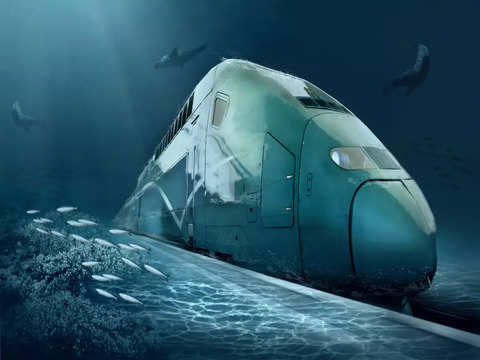On Friday, the cabinet committee on economic affairs, led by Prime Minister Narendra Modi, gave the green light to 8 railway projects under the Ministry of Railways, with a combined estimated cost of approximately Rs. 24,657 crores.
Union minister Ashwini Vaishnav stated that these projects will span 14 districts across 7 states including, Odisha, Maharashtra, Andhra Pradesh, Jharkhand, Bihar, Telangana, and West Bengal. The project will expand the Indian railways network by 900 kilometers.
Table Of Content
- The project aims to boost regional employment
- Expanding Rail Network Impact
- Eco-friendly freight capacity expansion
Boosting Mobility, Efficiency, and Economic growth
Vaishnaw highlighted that the new railway line projects will stimulate mobility and will deliver direct connectivity leading to enhanced efficiency and reliability of services for Indian Railways.
These routes are crucial for transporting commodities including agricultural products, fertilizer, coal, iron ore, steel, cement, bauxite, limestone, aluminum powder, granite, ballast, containers, and more
He noted that these projects align with Prime Minister Modi’s vision of a New India, aiming to make the region’s people “Atmanirbhar” through comprehensive development, which will boost employment and self-employment opportunities in the areas.
Details of New Railway Projects and Enhanced Connectivity
He further announced that the union cabinet has approved 8 major new railway line projects such as Gunpur- Therubali ( new line ), Junagarh- Nabrangpur, Badampahar-Kadujhargarh, Bangriposi- Gorumahisini, Malkangiri-Pandurangapuram, Buramara-Chakulia, Jalna-Jalgaon and Bikramshila- Katareah.
The press release stated that these projects will result in the construction of 64 news stations enhancing connectivity to 6 aspirational districts ( East Singhbum, Bhadadri Kothagudem, Malkangiri. Kalahandi, Nabarangpur, and Rayagada, impacting approximately 510 villages and a population of around 40 lakh.

Additionally, the Ajanta Caves, a UNESCO World Heritage site in Maharashtra will be connected to the Indian railway network, making it more accessible to a large number of tourists, the release added.
Microplastic Pollution and Railway Infrastructure Project
A recent study has highlighted concerning levels of microplastics in the coastal waters and sediments of Digha and Puri. Researchers detected an average of 5.3 to 6.4 microplastic items per liter of water and up to 190.4 items per kilogram of sediment. This poses serious risks to marine life and human health, leading to calls for urgent action.

In related developments, the Regional Empowered Committee has approved the upgrade of the Akola-Khandwa railway line to broad gauge, with a new alignment that bypasses the Melghat Tiger Reserve. The revised route will pass through Akot, Hiwarkhed, Sonala, Jalgaon Jamod, and Usami. The required forest clearance covers nearly 50 hectares, affecting wildlife corridors and necessitating extensive mitigation efforts, including a 7 km tunnel.
The capacity expansion efforts will increase freight traffic by 143 million tonnes per annum. As an eco-friendly and energy-efficient transportation mode, the railways will aid in meeting climate objectives, cutting logistics costs, reducing oil imports by 32.20 crore liters, and cutting CO2 emissions by 0.87 million tonnes, which is comparable to planting 3.5 crore trees.
Also, read-https://test.inpactimes.com/huge-uproar-in-rajya-sabha-as-opposition-stages-walk-out/



